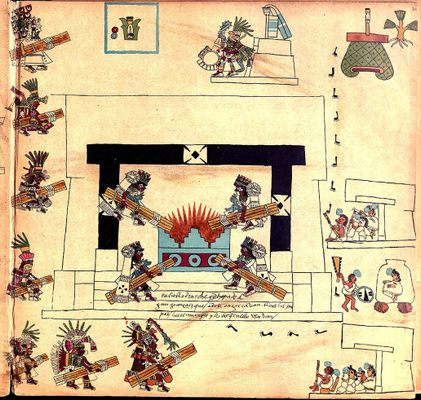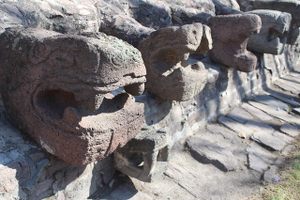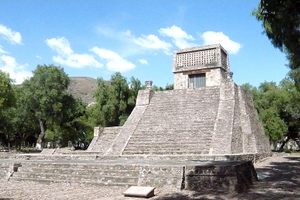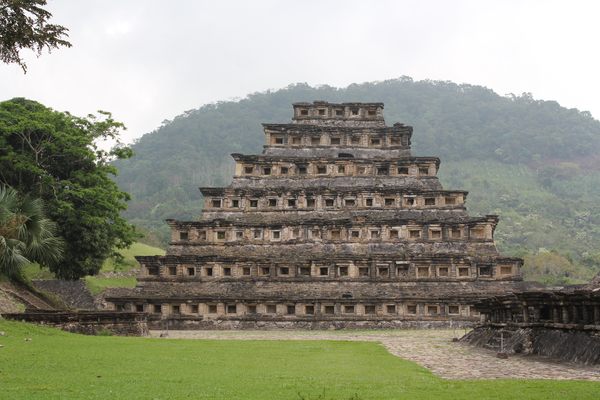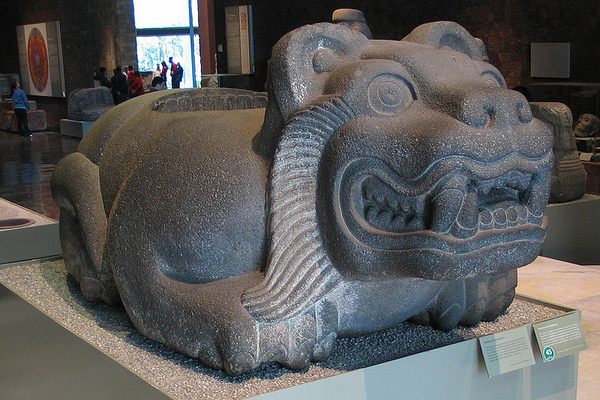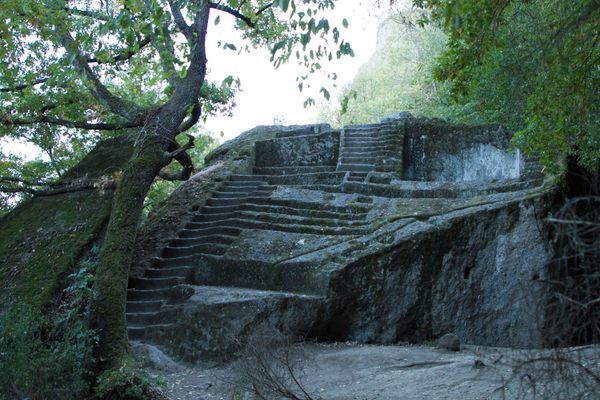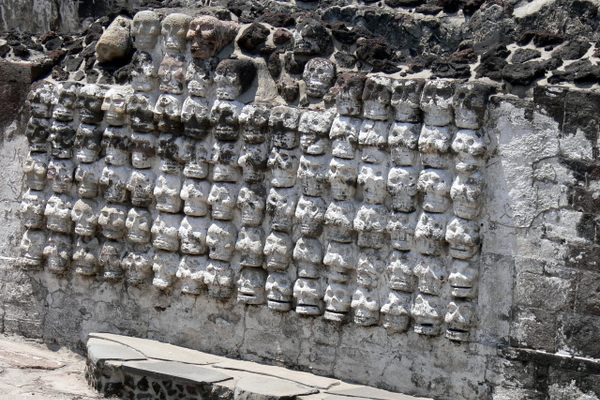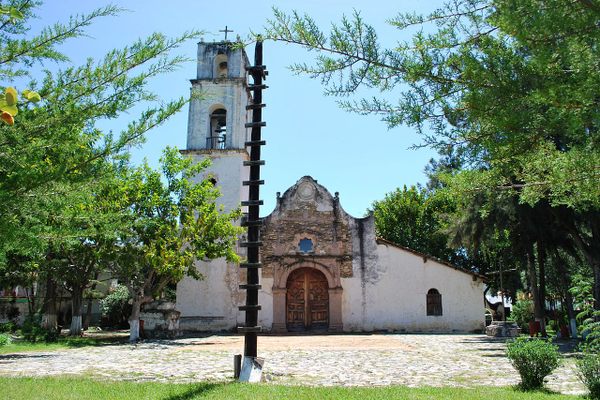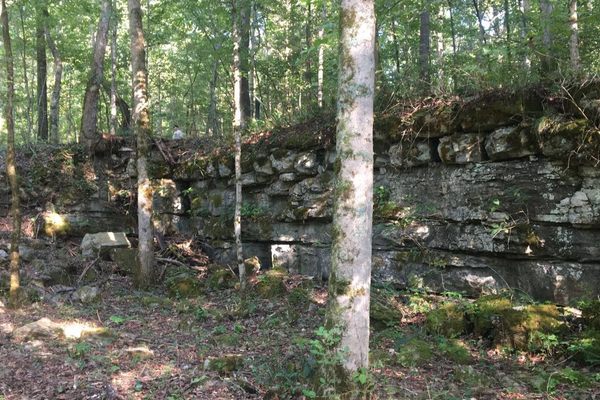About
Every 52 years, the length of one Aztec calendar cycle, the population would perform the Fuego Nuevo or "New Fire" ceremony, also called the "Binding of the Years." It was one of the most important Aztec rituals, as it was performed to ensure that the world would not end and a new cycle would begin.
As the year end approached, families would cleanse and destroy all their household items, including their most prized possessions and extinguish all domestic fires, waiting anxiously in darkness in silence to see whether civilization would continue or whether the universe would end. As part of the ritual, they would tie together bundles of 52 reeds, representing the closed cycle, and burn them.
The high priests would gather on a hilltop to perform the ceremony, which included human sacrifice, and light a new sacred fire. With that new flame, the people would relight their own fires and the cycle would begin again, with everything built anew, a cycle of creation emerging from destruction.
During the pre-Columbian period, this ceremony was held in Tenochtitlan and later moved to Cerro de la Estrella, in modern-day Mexico City. Some experts believe the New Fire ceremony was also performed at the Tenayuca Aztec pyramid in Tlalnepantla, based on archaeological details discovered at the site. Most notable is the “tomb of the years,” an altar decorated with imagery of human skulls and bones, found in the base of the pyramid. It's believed this is where the ashes of the destroyed years were buried. The altar is now housed on permanent exhibition at the archaeological museum at Tenayuca, also known as the Museo Xólotl (Xolotl Museum). Other clues include a cylindrical sculpture resembling the bundle of reeds burned in the ritual, and glyphs of the Aztec calendar depicted on the pyramid.
Even today, there are indigenous communities that continue to perform the New Fire ceremony every 52 years. The next one should come in 2027.
Related Tags
NEW - Yucatan: Astronomy, Pyramids & Mayan Legends
Mayan legends, ancient craters, lost cities, and stunning constellations.
Book NowPublished
October 12, 2018








